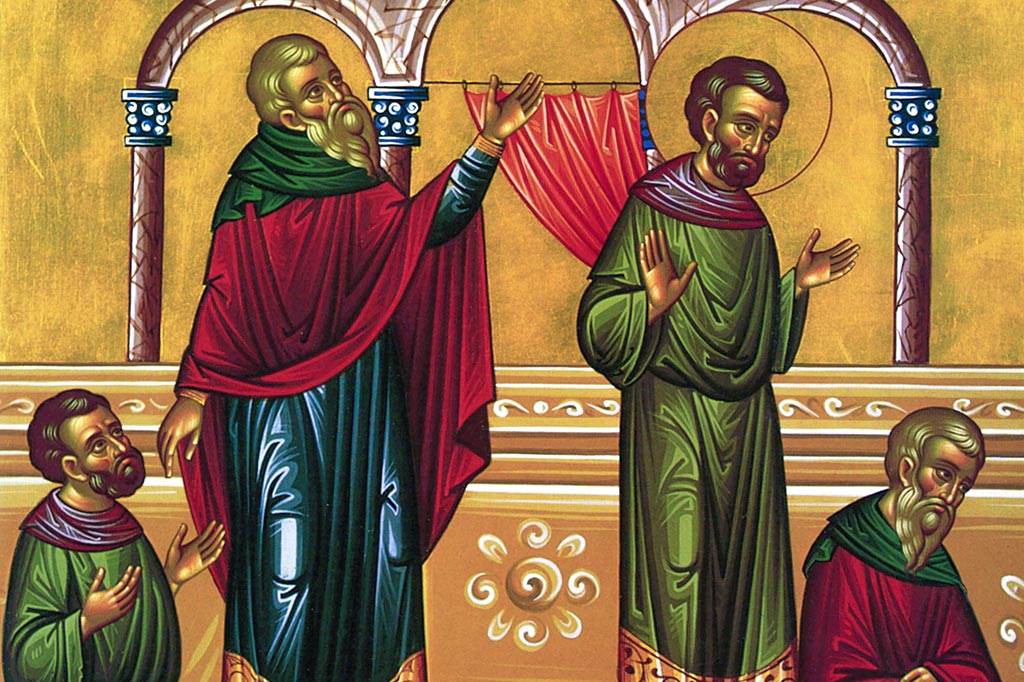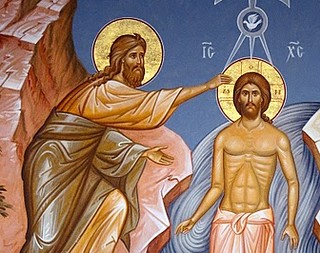“Judge not, that you not be judged. For with the judgment you pronounce you will be judged, and the measure you give will be the measure you get. Why do you see the speck that is in your brother’s eye, but do not notice the log that is in your own eye? Or how can you say to your brother, ‘Let me take the speck out of your eye,’ when there is the log in your own eye? You hypocrite, first take the log out of your own eye, and then you will see clearly to take the speck out of your brother’s eye.”
Matthew 7:1-5
It is important that we connect with the Word of God on a daily basis. That is why every Prayer Team message, no matter the subject, always begin with a verse, or a few verses from Scripture. In addressing today’s topic, of the difference between Orthodox and the rest of Christianity, I looked for a long time for appropriate verses but kept coming back to these even though they don’t talk about the difference between Christian churches. Today’s verses are all about not judging, something that all Christian denominations tend to do. Because everyone of them thinks it is the right and true church. Including us as Orthodox.
Now, we will argue that we are the church of the Apostles, that we have apostolic succession of our bishops, and that the way we are worshipping most closely resembles the way that the church was worshipping in the early centuries of Christianity. And that is truth. The Catholic Church will argue the same, after all, we have the same history up until the year 1054. How do we deal with the rest of Christianity? The simple answer is that we do not judge. We should not judge.
I spent 4.5 years of my ministry as the Proistamenos of the Greek Orthodox Church of the Holy Trinity in Asheville, North Carolina. The pre-eminent preacher in the town when I was there was Billy Graham. I have tremendous respect for Billy Graham (now of blessed memory). He preached all over the world, like St. Paul. Unlike St. Paul, he preached in more countries. There are more established nations in the world not than there were 2,000 years ago. Unlike St. Paul, Billy Graham had the internet to help spread his message. No one has ever had more of their writings read than St. Paul. But probably no one has ever been seen on camera or in person than Billy Graham. Billy Graham brought more people to Christ than I ever will. Yet, there are people who think Billy Graham was not a real Christian because he wasn’t Orthodox, which is very short-sighted.
I have had friends who are clergy in other denominations, specifically Roman Catholic. And I respect them, for giving their lives to spreading the word of God. Is Orthodoxy the only way to salvation? There are probably people who will disagree with me, but I will say “no.” It’s like when you are picking a college to go to (or your child). Are certain colleges rated better than others? Yes. Are there some colleges that have better reputations or are more prestigious? Yes. The purpose of college is to help educate students and help them figure out where they are going to make their mark in the world. Is there a perfect college? Probably not. Is there a perfect college for a particular person? Probably yes.
Is Orthodoxy for everyone? Probably not. Is it for certain people? Definitely yes.
There are a few things that set Orthodoxy apart from other Christian denominations besides Apostolic Succession. We have a primary emphasis on the Eucharist. So do the Roman Catholics. In both churches, the Eucharist is the central thing the church does. We are to partake of it often. Other denominations do not offer the Eucharist to the degree that it is offered by the Orthodox and the Roman Catholics. The Orthodox, along with the Roman Catholics, have a strong sacramental theology, meaning that the sacraments—Eucharist, Baptism, Ordination, Marriage, etc. are done by ordained clergy, are done frequently, and are done in the same way across the world.
There are a few doctrinal differences between the Orthodox and the Roman Catholics—one has to do with the filioque, a word added to the Creed which says that the Holy Spirit proceeds from the Father and the Son, as opposed to the Father, as it is in Orthodox theology. Another doctrinal difference has to do with the primacy of Rome. Other differences include the Immaculate conception of Mary and the infallibility of the Pope, though both of these are later doctrines. There are a lot of differences in practice, however, between the Orthodox and Roman Catholics. One is that the Orthodox allow priests to be married. Another is that the priest faces the people during the Catholic Mass, though this is an innovation from Vatican II in 1965. I’m not criticizing, so please do not read this as criticism, but a lot of Catholic theology is based on the teachings of St. Augustine, who seems pessimistic. Confession seems like it is for the purpose of not only repentance, but penance (punishment), which is meted out by the priest—i.e. do so many Hail Mary’s, so many “Our Fathers”, etc. While it seems that Catholic confession highlights the need for repentance and penance, the Orthodox theology emphasizes healing, not punishment. Many churches begin Lent by spreading ashes on their heads, as a sign of penance and unworthiness, or even just sinfulness. On the first day of Orthodox Great Lent, many church offer Holy Unction, so that the mark is invisible, and we are also marked for healing, and not for punishment.
Other churches are not sacramental, they don’t have universal doctrine, they don’t emphasize the priesthood as sacrament, or the priest as the distributor of the sacraments, and they don’t have confession, the opportunity to receive remission of sins and not their forgiveness.
Our son goes to an evangelical Protestant school, and occasionally I have attended their chapel services. Yes, they have a praise band, there is no priest in vestments, people raise their hands as they sing, and they close their eyes and sway to the music, all things that are foreign to me as an Orthodox Christian. But they believe, boy do they believe in God. Their zeal is very attractive. In fact, I have thought off and on over the years that is we could take the theology of the Orthodox, the administration of the Catholics and the zeal of the Protestants, you’d have the perfect church.
We have icons, and in many places half-empty churches. Other denominations are full but lack depth. There is no perfect church and no perfect member of a church. One thing we need to remember, however, is that our lives should fit around our church, rather than the church fitting around our lives. That’s why so many new denominations are popping up. As people change their opinions on things, they need to have a church that can shift with their morality, and when they don’t find one, they just create a new one. Orthodoxy, on the other hand, is timeless, we are to fit our lives around it, rather than it around us.
There are many churches that teach, preach and heal (through pastoral care and community outreach). There are many Orthodox Churches that have beautiful buildings but who don’t do any of these things well. There are dynamic preachers like Billy Graham who probably never went to confession. And there are plenty of people who are not dynamic but are quietly faithful in our church, and some of course who are dynamic. It’s important that we belong to a church, to a community, and from that community, that we worship God and serve one another.
Lord, thank You for the gift of the church I belong to. Remember my priest and everyone who calls my church its spiritual home. Be with all the priests and all the congregations of the world, Orthodox or not. Be with all those who have left the church or who haven’t found a church. Enlighten us all, and help us not to judge one another. Rather help us to see the log in our own eye before we look at the speck in our brother’s. Amen.
Let us not judge others, but only judge ourselves. If you are reading this message and you are Orthodox, most certainly there is more that you can do to better understand the faith and live it. I know that this is true for me.



